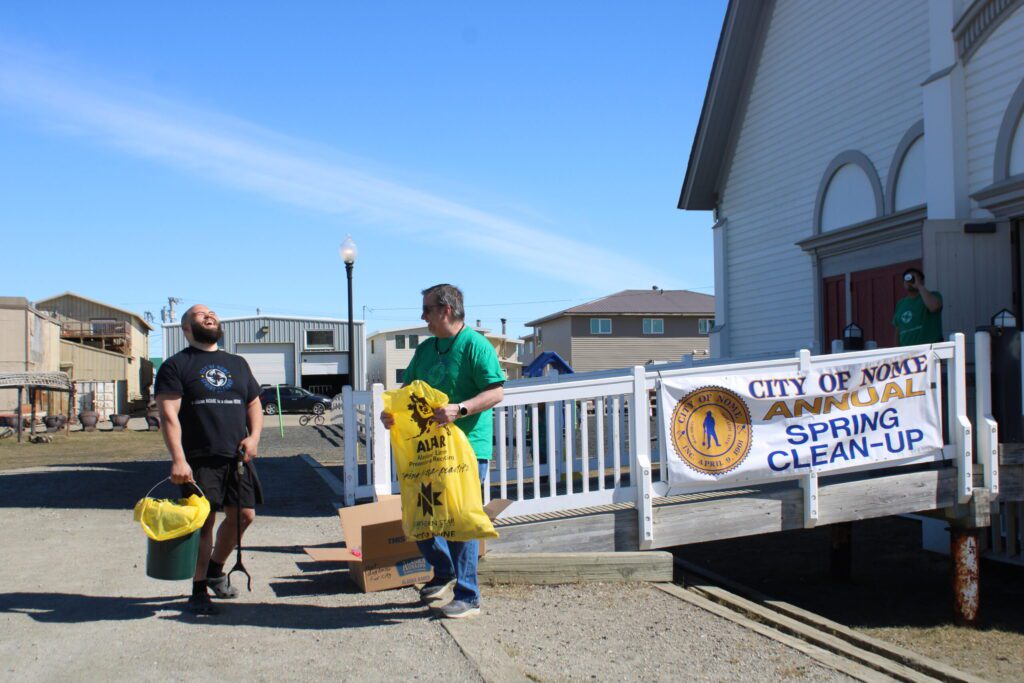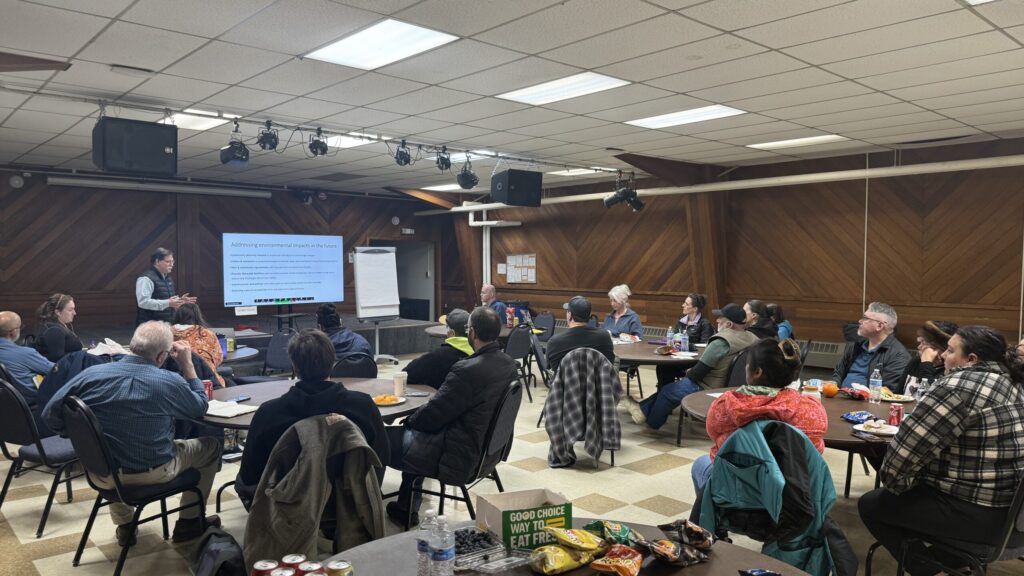Port commissioner Rolland Trowbridge said city officials should look to the port when it comes to collecting unclaimed sales tax, the main topic of discussion at Thursday’s port commission meeting in the wake of a terse bulletin issued by city finance officials urging businesses and individuals to secure the proper license—and collect all due sales tax.
“All individuals, firms, and other business entities must register with the City Clerk’s Office before making sales, making rentals, or rendering services within the City of Nome,” the bulletin from the city finance department declared.
With the city keen on more thorough sales tax collection for services rendered within Nome city limits, Trowbridge said tightening enforcement for businesses on land is fine, but the port should get its house in order as well—not just for the sake of the city, but for the port’s own good, too.
“We’re worrying about the hairdresser in town paying sales tax, but I’m pretty sure—in fact, I know—that a lot of work is getting done at the port, and money is changing hands, and there is no sales tax being charged,” Trowbridge said. “And I’m talking thousands and thousands of dollars of work.”
Trowbridge said his concern comes from his perspective both as a commissioner and as a local business owner.
“I look at it a little bit as a jealous businessman, saying, ‘that’s not really fair.’ But I also look at it like, if we had that money coming in, we could support more of that kind of work.”
Port Project Manager Joy Baker acknowledged that off-the-books repairs and services are on the port commission’s radar, but she said that a sales tax requirement would be difficult to enforce.
Harbormaster Lucas Stotts cited Nome’s bustling dredge fleet as a particularly tricky area for regulation. He said it’s often difficult to determine who is working for whom, and whether they have been hired through official channels.
“Unfortunately, with Nome, we have such a unique dredging fleet that everyday there’s welding and grinding and cutting and whatever else. So it is very tough to tell.”
Contributing to the confusion, Stotts said, is the fact that a dredge’s owner and operator may be different people. And while the Nome harbor may see the same dredge year after year, Stotts said the dredgers and tenders and owners may all change. That could make it difficult to determine who is performing repairs on their own vessel, and who has been hired to work on a vessel temporarily.
“It’s a matter of just beating feet, knowing what’s going on constantly, and staying after it,” Stotts said. “We are actively pursuing it.
But in a harbor that’s already over capacity, that pursuit may be easier said than done. As if to illustrate the myriad duties that already fall to the harbormaster, Thursday’s commission meeting was interrupted when Stotts was called away to investigate reports of a sinking boat in the Nome harbor.
He returned to inform the commission that no one was hurt, and in fact, the reported boat was actually a rotting headless walrus carcass found floating in the water.
The Nome Port Commission will take up the sales tax issue again at it’s next meeting, planned for an unannounced date in September.







